- Next Event: NINE Headquarters, LUCCA (Italy), 23-27 September 2024
- Early Registration 28 July 2024
MMARS - Lecturers
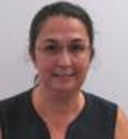
Course: Thermal-Hydraulics Core Analysis: Phenomenology and Computational Tools
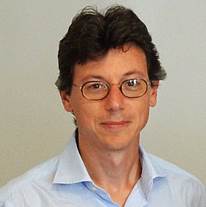
Dr. Marco Cherubini is the Vice-President of NINE and current Head of the Core Behavior Area devoted to prediction and analysis of NPP core by different disciplines viewpoint. Prior to join NINE, he worked over 7 years in the Nuclear Research Group of San Piero a Grado (GRNSPG) being responsible for System Thermal-Hydraulics simulations. He got his PhD Degree in “Nuclear and Industrial Safety” Course of the “Leonardo da Vinci” Doctoral Engineering School in 2008, discussing a thesis dealing with Accident Management in VVER-1000. In the last three years Nuclear fuel behavior became his first priority topic of interest, continuing its involvement in thermal hydraulics activities. He is taking part at different International OECD-NEA and IAEA activities including code benchmarking, noticeably for the nuclear fuel.
Course: Fuel Behavior Analysis: Phenomenology and Computational Tools
 Domenico De Luca is an engineer at the Nuclear and Industrial Engineering (N.IN.E.) in plant thermal hydraulics area. He graduated from the University of Pisa with a degree in Industrial and Nuclear Safety Engineering in 2008. He got the Master degree in Nuclear and Industrial Safety Engineering at the University of Pisa in 2013, with a thesis related to the analysis of the thermal-hydraulic system response of a PWR during LOCA and core blockage scenarios. During his master degree (2010-2011), he was a research assistant at the Nuclear Research Group of San Piero a Grado (GRNSPG) led by Prof. F. D’Auria at University of Pisa. Then, he spent 8 months (2011-2012) in internship at the Nuclear Engineering Department of Texas A&M University as non-affiliated student technician II, under the supervision of Prof. Y. A. Hassan. In 2011 he started to work in N.IN.E. (since its foundation) in the field of system thermal hydraulics, focusing mainly in safety and licensing analyses of NPP. He is involved also in several international IAEA and OECD/NEA activities.
Domenico De Luca is an engineer at the Nuclear and Industrial Engineering (N.IN.E.) in plant thermal hydraulics area. He graduated from the University of Pisa with a degree in Industrial and Nuclear Safety Engineering in 2008. He got the Master degree in Nuclear and Industrial Safety Engineering at the University of Pisa in 2013, with a thesis related to the analysis of the thermal-hydraulic system response of a PWR during LOCA and core blockage scenarios. During his master degree (2010-2011), he was a research assistant at the Nuclear Research Group of San Piero a Grado (GRNSPG) led by Prof. F. D’Auria at University of Pisa. Then, he spent 8 months (2011-2012) in internship at the Nuclear Engineering Department of Texas A&M University as non-affiliated student technician II, under the supervision of Prof. Y. A. Hassan. In 2011 he started to work in N.IN.E. (since its foundation) in the field of system thermal hydraulics, focusing mainly in safety and licensing analyses of NPP. He is involved also in several international IAEA and OECD/NEA activities.
Course: System Thermal-hydraulics Analysis: Phenomenology and Computational Evaluation Model
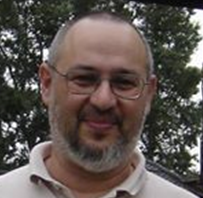
Course: Severe Accident Analysis: Phenomenology and Computational Tools
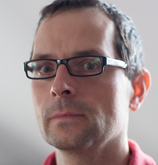
Course: Preparation and Review of Safety Related Documentation (FSAR)
 Dr. Sergiy Lobach graduated from National Technical University of Ukraine in 2002 with major in nuclear engineering.
Dr. Sergiy Lobach graduated from National Technical University of Ukraine in 2002 with major in nuclear engineering.
From 2001 to 2004 and later from 2009 to 2011 worked at Kiev-based “Nuclear Power Plant Operational Support Institute. At that time was involved in the development of SAR and EIA for major facilities under construction at Chernobyl NPP site (namely, Industrial Complex for Solid Radwaste Management – ICSRM - and spent fuel Interim Storage Facility - ISF-2 -). In 2004 -2008 studied in the US universities at PhD level with the focus on radiochemistry (separation technologies) and TRISO fuel production for Very High Temperature Reactors. In 2011-2012 worked as Deputy Head of department for international cooperation in State Scientific and Technical Center for Nuclear and Radiation Safety. This Technical Support Organization (TSO) provides assistance to the Ukrainian nuclear regulatory authority. Since 2013 while working for Belgian-based Tractebel Engneering as part of Project Management Unit (PMU) provides technical and consulting services during decommissioning of Ignalina NPP in Lithuania. Also in the period of 2015 – 2017 served as Deputy Project Manager for B2-project (construction and commissioning of Radwaste Management and Treatment Facilities). Since 2018, moved to Tractebel’s headquarter in Brussels. As a project manager mainly was responsible for implementation of activities related to Decommissioning & Waste Management Program at EU-JRC Ispra site. Further assignments include the support to UK Office for Nuclear regulation and international cooperation in with Lithuania, Bulgaria and Ukraine.
Since 2021, while representing Italian-based “NINE” has joined the on-site team at JRC Ispra. Currently he is involved in the activity related to radwaste management facilities and collaboration in the development of decommissioning plan for the whole site.
Course: Preparation and Review of Safety Related Documentation (FSAR)
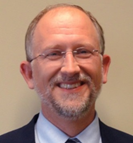
Course: Severe Accident Analysis: Phenomenology and Computational Tools
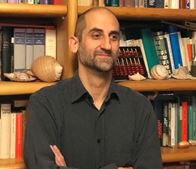
N. Müllner is the representative of Austria in the "Nuclear Safety Standards Committee" of the International Atomic Energy Agency IAEA 2013-2020 and adviser to the Austrian Ministry for Sustainability and Tourism, Nuclear Coordination. He is the author of numerous publications in journals, conference proceedings and specialist publications of the IAEA and OECD / NEA.
Course: Radiological Consequence Analysis
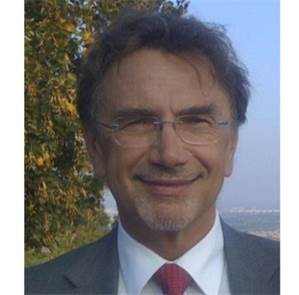 Mr. Mike Modro has over 40 years of experience in research and engineering, including over 30 years in Nuclear Reactor Design, Licensing and Safety Research. His field of expertise includes: Analyses and Research related to Nuclear Power Plant behavior during accident conditions; Assessment and Validation of various Computer Codes used to simulate nuclear plant behavior; Development and conduct of Experimental programmes in support of nuclear safety needs; Programme and line Management, Business and Resource development. He worked over 25 years within the Idaho National Laboratory (United States) and 6 years as Senior Safety Assessment Officer for the International Atomic Energy Agency (for whom he is currently a Senior Consultant). He is a Guest Lecturer for the Imperial College of London (UK). He has a background in Physics from the University of Bern (Switzerland) and the University of Warsaw (Poland).
Mr. Mike Modro has over 40 years of experience in research and engineering, including over 30 years in Nuclear Reactor Design, Licensing and Safety Research. His field of expertise includes: Analyses and Research related to Nuclear Power Plant behavior during accident conditions; Assessment and Validation of various Computer Codes used to simulate nuclear plant behavior; Development and conduct of Experimental programmes in support of nuclear safety needs; Programme and line Management, Business and Resource development. He worked over 25 years within the Idaho National Laboratory (United States) and 6 years as Senior Safety Assessment Officer for the International Atomic Energy Agency (for whom he is currently a Senior Consultant). He is a Guest Lecturer for the Imperial College of London (UK). He has a background in Physics from the University of Bern (Switzerland) and the University of Warsaw (Poland).
Course: Preparation and Review of Safety Related Documentation (FSAR)

Dr. Morichi has more than 25 years’ experience in management, research, engineering, product & program management, Technology scouting, Intellectual Property Management, Technology Merge & Acquisition. He was CTO-VP R&D Innovation of BU Nuclear Measurements (CANBERRA BUNM of AREVA) and later SVP-Director of R&D Innovation of the AREVA Group (2004-2016) (now FRAMATOME and ORANO) and was coordinating a group of Physics and Engineering of 280 people and Chairman of the College of AREVA Experts (800 experts in all nuclear technology domains). In March 2011 took the responsibility in Japan of the AREVA Fukushima Project as WG Leader of the site remediation and mitigation plan where he realized many systems including the first on-site contaminated water treatment system. He established key technology developments with CEA, DOE National Laboratories, IAEA and major nuclear industries and he actively promote and participate to the creation of the “Nuclear Reactor Institute” (EDF-CEA-AREVA) He is a certified AREVA international Senior Expert on Instrumentation, Nuclear Measurements and Safety & Protection and he’s a Certified Radiation Protection Expert. He was member of Visiting Committee member of IRSN and has been Board member of the Nuclear Experimental Reactor J. Horowitz. He’s Board member of the D&D section of the American Nuclear Society and Chairman of many sections of Scientific Conferences (ANIMMA and IEEE-NSS). Dr. Morichi supervised and tutored many Master Thesis and PhDs from several universities. He has been awarded with three International Patents and has more than 40 International Scientific Publications.
Course: Nuclear Decommissioning, Waste Management and Environmental Site Remediation
 Dr. Alessandro Petruzzi is President of the Board of Directors of Nuclear and INdustrial Engineering (NINE) since 2011. He received Ph.D. in Nuclear and Industrial Safety from University of Pisa where he worked on development of Uncertainty Methods for system thermal-hydraulics codes and application of BEPU methodology to Safety Analysis in Licensing framework. From 2007 to 2013 he acted as deputy manager of GRNSPG (University of Pisa) working on the preparation of Chapter 15 of FSAR of Atucha-2 NPP in Argentina. His current research concentrates on thermal-hydraulics, multi-physics methods for reactor safety analysis, forward and inverse methods for uncertainty quantification and he is member of several NEA working group both at NSC and CSNI. In 2013 he was the main organizer of NURETH-15 in Pisa.
Dr. Alessandro Petruzzi is President of the Board of Directors of Nuclear and INdustrial Engineering (NINE) since 2011. He received Ph.D. in Nuclear and Industrial Safety from University of Pisa where he worked on development of Uncertainty Methods for system thermal-hydraulics codes and application of BEPU methodology to Safety Analysis in Licensing framework. From 2007 to 2013 he acted as deputy manager of GRNSPG (University of Pisa) working on the preparation of Chapter 15 of FSAR of Atucha-2 NPP in Argentina. His current research concentrates on thermal-hydraulics, multi-physics methods for reactor safety analysis, forward and inverse methods for uncertainty quantification and he is member of several NEA working group both at NSC and CSNI. In 2013 he was the main organizer of NURETH-15 in Pisa.
Courses: System Thermal-hydraulics Analysis: Phenomenology and Computational Evaluation Model; Preparation and Review of Safety Related Documentation (FSAR)
 Mr. Ted Quinn has over 40 years of experience in managing nuclear and fossil utility contracts and personnel in support of both project and supplemental assignments at various utilities in the U.S. He is past President of the American Nuclear Society (ANS) (1998-1999) and currently serves as the Chairman of the International Electrotechnical Commission (IEC) SC45A Working Group A9 on Nuclear Instrumentation Systems. He has managed and performed projects in licensing and compliance, electrical and controls design, startup and operation, including Standards development for the Instrument Society of America (ISA) and the International Electrotechnical Commission (IEC) and is the author of over 100 papers and presentations on nuclear instrumentation and control subjects. He has been an instructor at the MIT Summer Reactor Safety Course for over 15 years, the NRC Digital I&C Licensing Course for 6 years, a number of IAEA country I&C training courses, and a Board member of the nuclear engineering programs at both Oregon State and The Ohio State University. He currently provides licensing support to TerraPower for their Instrumentation and Control Program, in 2013 completed the licensing and engineering for eight awarded IOM nuclear projects in China, and was a team member for the Diablo Canyon Plant Protection System Replacement Project License Amendment, which received NRC approval in December, 2016. In 2009, he was awarded the highest award in IEC, the 1906 Award, for the development of standards, and in 2011, he received the ANS Walter Zinn Award, named after the first President of ANS and in 2017 was awarded the ANS Don Miller Instrumentation and Control Engineering Award, named after Dr. Don Miller from The Ohio State and in 2018 was recognized as a Fellow of the International Society of Automation (ISA).
Mr. Ted Quinn has over 40 years of experience in managing nuclear and fossil utility contracts and personnel in support of both project and supplemental assignments at various utilities in the U.S. He is past President of the American Nuclear Society (ANS) (1998-1999) and currently serves as the Chairman of the International Electrotechnical Commission (IEC) SC45A Working Group A9 on Nuclear Instrumentation Systems. He has managed and performed projects in licensing and compliance, electrical and controls design, startup and operation, including Standards development for the Instrument Society of America (ISA) and the International Electrotechnical Commission (IEC) and is the author of over 100 papers and presentations on nuclear instrumentation and control subjects. He has been an instructor at the MIT Summer Reactor Safety Course for over 15 years, the NRC Digital I&C Licensing Course for 6 years, a number of IAEA country I&C training courses, and a Board member of the nuclear engineering programs at both Oregon State and The Ohio State University. He currently provides licensing support to TerraPower for their Instrumentation and Control Program, in 2013 completed the licensing and engineering for eight awarded IOM nuclear projects in China, and was a team member for the Diablo Canyon Plant Protection System Replacement Project License Amendment, which received NRC approval in December, 2016. In 2009, he was awarded the highest award in IEC, the 1906 Award, for the development of standards, and in 2011, he received the ANS Walter Zinn Award, named after the first President of ANS and in 2017 was awarded the ANS Don Miller Instrumentation and Control Engineering Award, named after Dr. Don Miller from The Ohio State and in 2018 was recognized as a Fellow of the International Society of Automation (ISA).
Course: Digital I&C Training

Course: Severe Accident Analysis: Phenomenology and Computational Tools
 Dr. Alex Viktorov has been involved in the areas of fuel design and performance, containment safety and severe accident analysis during the over thirty years in the nuclear engineering field. Within the CNSC, he contributed to the evaluation and implementation of the lessons arising from the Fukushima accident, in particular with respect to the accident management and emergency response. He represented Canada in many international working groups such as the Multinational Design Evaluation Program, NEA Working Group on Analysis and Accident Management, and a number of IAEA activities. For several years he served as the Director of a CNSC group responsible for the regulatory oversight of reactor containment and moderator design, severe accident analysis evaluations, severe accident management, and technical assessments in support of emergency response. Currently he is Director of a Regulatory Program Division accountable for the regulatory oversight of a power plant safety performance. In this capacity he is responsible for planning, implementation and analysis of all compliance and licensing activities for a Nuclear Power Plant. One area of particular interest at this time is the development of a strategy for the planned end of commercial operations of a nuclear facility.
Dr. Alex Viktorov has been involved in the areas of fuel design and performance, containment safety and severe accident analysis during the over thirty years in the nuclear engineering field. Within the CNSC, he contributed to the evaluation and implementation of the lessons arising from the Fukushima accident, in particular with respect to the accident management and emergency response. He represented Canada in many international working groups such as the Multinational Design Evaluation Program, NEA Working Group on Analysis and Accident Management, and a number of IAEA activities. For several years he served as the Director of a CNSC group responsible for the regulatory oversight of reactor containment and moderator design, severe accident analysis evaluations, severe accident management, and technical assessments in support of emergency response. Currently he is Director of a Regulatory Program Division accountable for the regulatory oversight of a power plant safety performance. In this capacity he is responsible for planning, implementation and analysis of all compliance and licensing activities for a Nuclear Power Plant. One area of particular interest at this time is the development of a strategy for the planned end of commercial operations of a nuclear facility.
Course: Regulatory Fundamentals and Best Regulatory Practices

Course: Advanced Course on Key Elements of Risk Quantification and PSA



